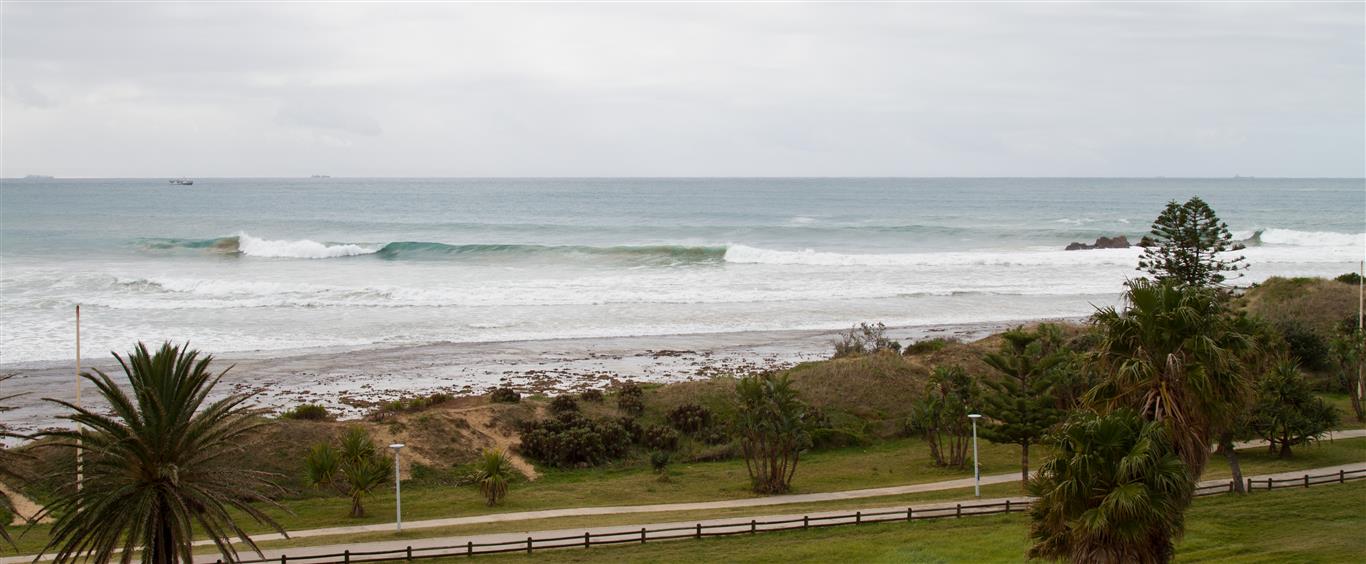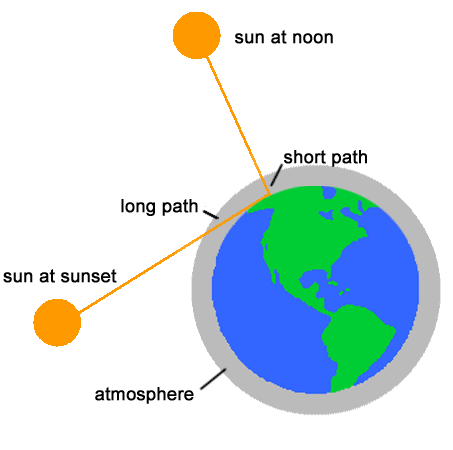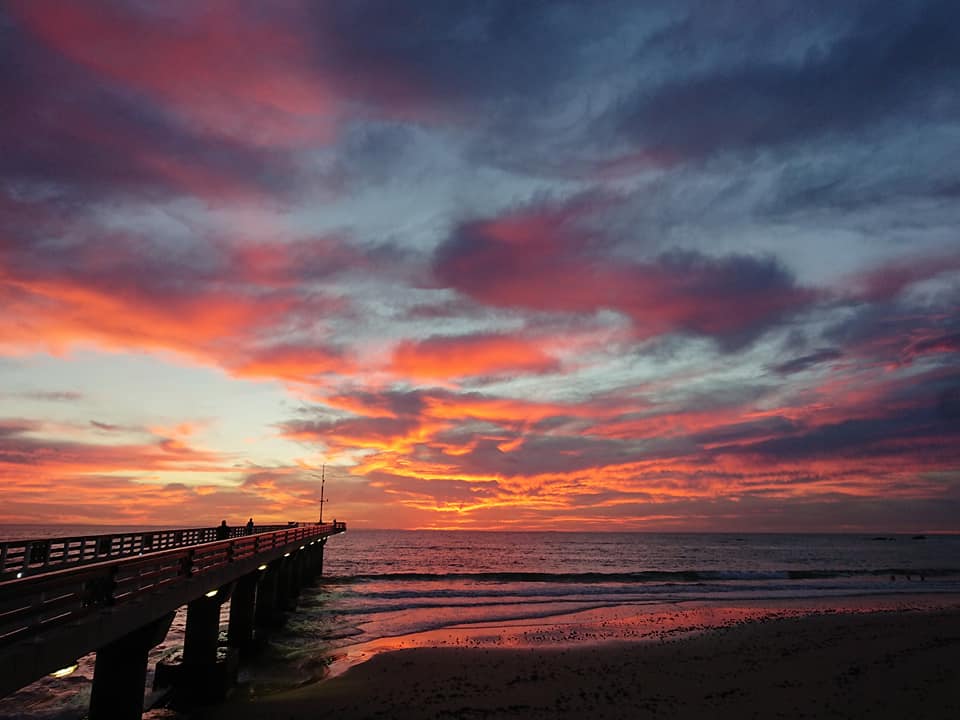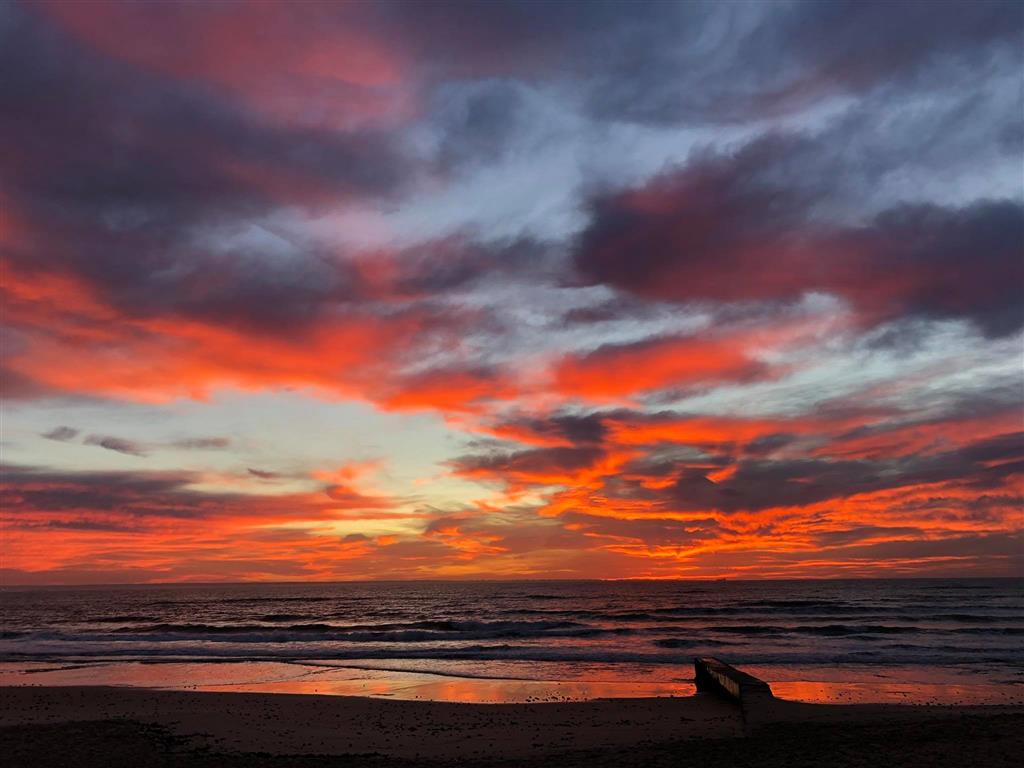|
We all know that winter sunrises and sunsets are pretty spectacular. But why? Here's an excerpt from a Nat Geo article explaining what goes into making an epic lightshow. The basics first: When a beam of sunlight strikes a molecule in the atmosphere, what's called "scattering" occurs, sending some of the light's wavelengths off in different directions. This happens millions of times before that beam gets to your eyeball at sunset. The two main molecules in air, oxygen and nitrogen, are very small compared to the wavelengths of the incoming sunlight—about a thousand times smaller. That means that they preferentially scatter the shortest wavelengths, which are the blues and purples. Basically, that's why the daytime sky is blue. The daytime sky would actually look purple to humans were it not for the fact that the sensitivity of our eyes peaks in the middle [green] part of the spectrum—that is, closer to blue than to purple. But at sunset, the light takes a much longer path through the atmosphere to your eye than it did at noon, when the sun was right overhead. And that is enough to make a big difference as far as our human eyes are concerned. It means that much of the blue has scattered out long before the light reaches us, leaving a disproportionate amount of oranges and reds as that beam of light hits us. So why the pyrotechnics in winter? Turns out the the air along the path of the ray of sunlight tends to be dryer and cleaner, so more red and orange gets to us. The stormy nature of winter helps as well - the dramatic sunsets after a weather system moves through are accentuated by the clouds. There's often a slanting band of clouds on the back side of the departing weather system, and that can act as a sort of projection screen for the low-sun colors, better than a horizontal band would. The slant means it captures more of the orange and red light, and if the cloud is thin enough, it will reflect those colors down to you. Also, storms wash a lot of the big particles out of the air.
So there's why we get those kiff sunsets and sunrises at this time of year. Comments are closed.
|
AuthorMillerslocal Archives
July 2021
|





 RSS Feed
RSS Feed
